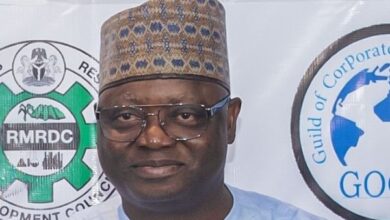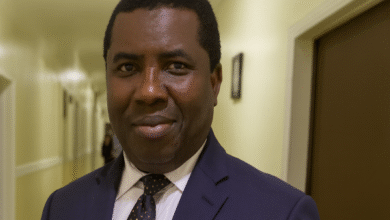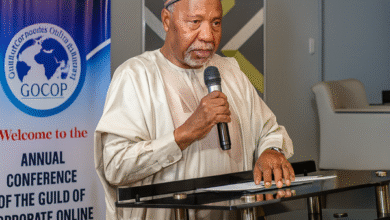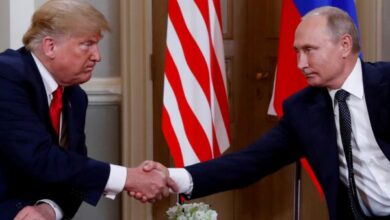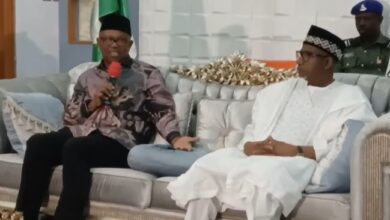Peter Obi Confirms 2027 Presidential Run, Vows One-Term Presidency Focused on Security, Economy

Former Anambra State Governor and Labour Party presidential flagbearer in the 2023 general elections, Mr. Peter Obi, has officially declared his intention to contest the 2027 presidential election—offering a bold, reformist one-term agenda aimed at economic recovery, governance stability, and social justice.
Speaking during a live X Spaces session on Sunday night, Obi affirmed that he is ready to return to the presidential race, but under a self-imposed single four-year term limit, if elected.
“If there is any form of agreement that will restrict me to four years in office, I will comply and be ready to leave office by 28th May, 2031,” Obi said.
In a follow-up statement released on Monday by his spokesperson, Ibrahim Umar of Peter Obi Media Reach, the former governor also denied any talks of a joint ticket with former Vice President Atiku Abubakar, emphasizing that his focus is on “solutions, not political permutations.”
A Reformist Blueprint: Stability, Security, and Structural Change
Obi’s campaign message is unambiguous: Nigeria is at war with poverty, insecurity, and misgovernance, and the time has come for disruptive but responsible leadership.
He pledged to stabilize the country within two years of assuming office, laying out an agenda focused on security, education, poverty eradication, and cost-effective governance.
“To bring order to governance, I will prioritize security, education, and lifting people out of poverty. This begins with cutting the cost of governance and fighting corruption from day one,” Obi declared.
He also announced his refusal to allow political defection by elected officials, describing party-switching as a threat to democratic integrity.
“There will be no defection of elected officials to other parties under my presidency. A strong democracy needs a strong opposition,” he said.
Beyond the Campaign: Governance With Purpose
Obi signaled a different style of political engagement, promising a non-violent, transparent electoral strategy for 2027 and demanding integrity across all facets of governance.
He proposed a new model where government is judged not by rhetoric but by concrete action. He decried what he termed as the current administration’s misplaced priorities, noting that while “people are dying in Benue and Borno,” national attention is being diverted to frivolities like ceremonial bus stop commissions and unnecessary foreign trips.
Criticizing President Tinubu’s reported 10-day visit to St. Lucia, Obi said:
“St. Lucia is about the size of Ilorin, Nigeria’s 10th largest city. Since assuming office, the President has not slept a single night outside Lagos in any Nigerian state. Leaders should stay home and fix the country.”
Labour Party Crisis and Coalition Politics
Obi acknowledged the ongoing leadership tussle within the Labour Party but assured that steps are being taken to secure INEC’s endorsement of the Nenadi Usman-led faction, based on recent Supreme Court pronouncements.
While open to coalition talks ahead of 2027, Obi was emphatic that any alliance must be issue-based.
“If the coalition is not about stopping the killings in Zamfara, reviving our economy, and putting food on the table for Nigerians—count me out.”
He added that any agreement that emerges will not compromise national interest, and must be rooted in shared values, performance benchmarks, and transparency.
Rotation of Power and National Unity
Reaffirming his belief in equity and inclusion, Obi backed rotation of power between the North and South, citing his precedent in Anambra State where he upheld the zoning formula during his tenure.
“I implemented power rotation in Anambra. I believe in inclusive governance that reflects our diversity.”
The Verdict: Obi’s 2027 Vision in Context
Peter Obi’s re-entry into the 2027 race sets the stage for what could become a defining battle between continuity and disruption, between elite political bargains and performance-driven politics. His promise of a four-year sprint rather than a two-term marathon is a strategic play aimed at undecided voters craving fast and credible change.
But beyond the promises lies the question: Can Nigeria’s political and institutional machinery accommodate such a bold, time-bound leadership model?
BRANDECONOMY’s Note:
As Nigeria’s democratic maturity continues to be tested, Peter Obi’s reemergence is shaping up to be more than a political comeback—it is a referendum on governance credibility, economic vision, and the power of citizen-led accountability. Whether his model resonates with the broader electorate remains to be seen, but his pitch sets a high bar for political discourse ahead of 2027.






